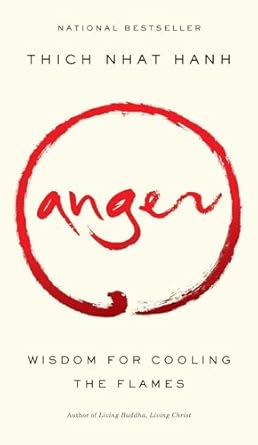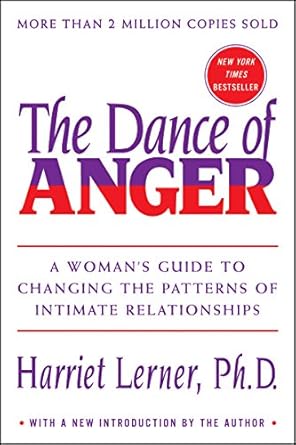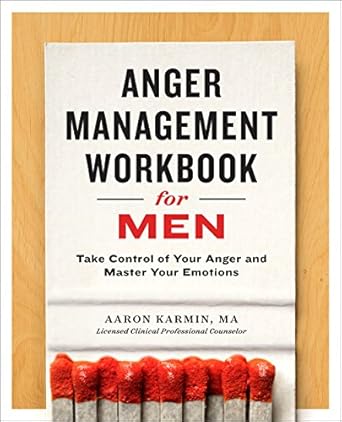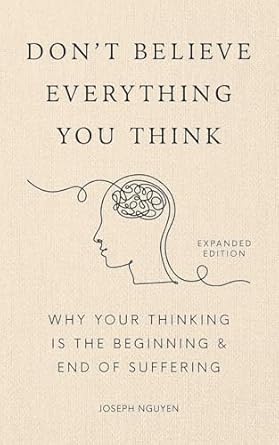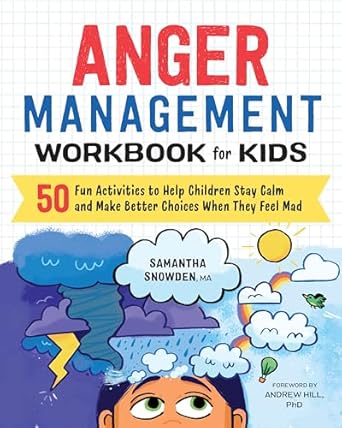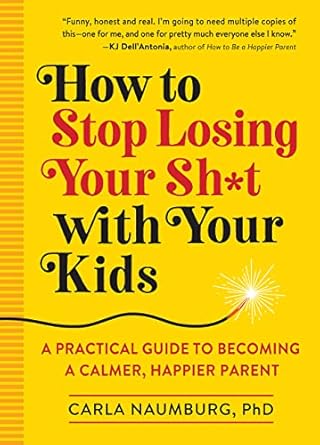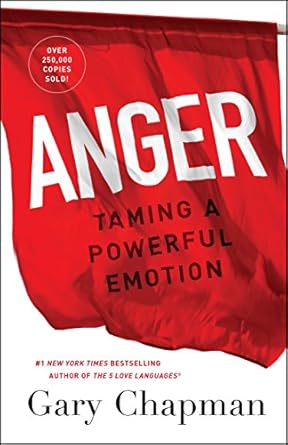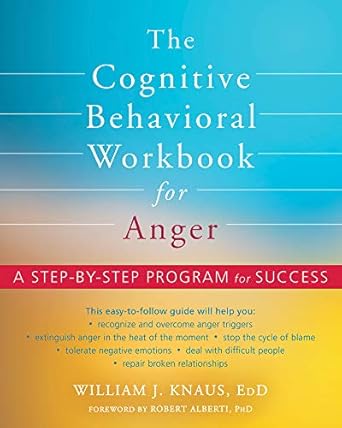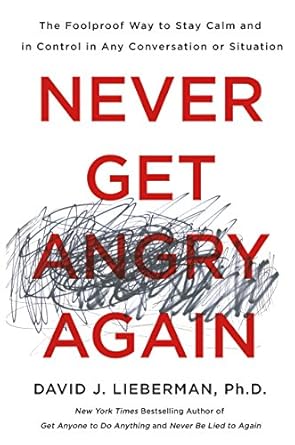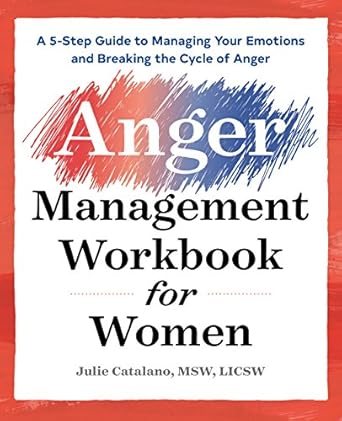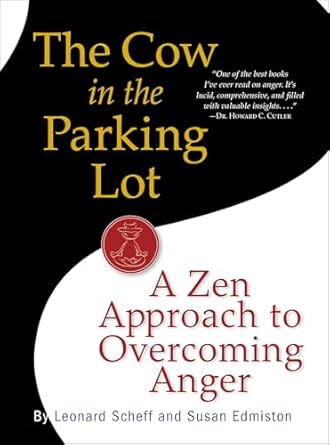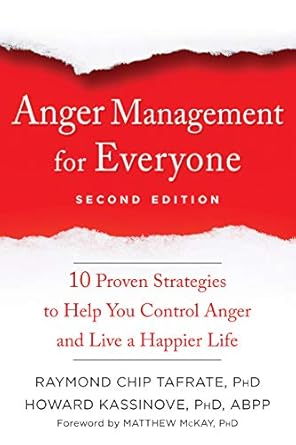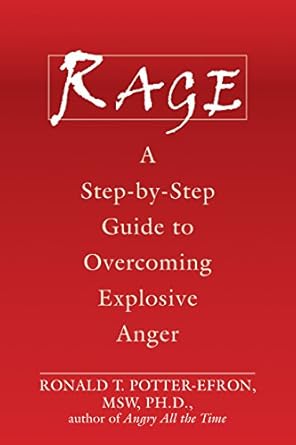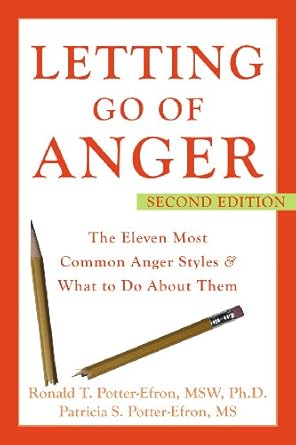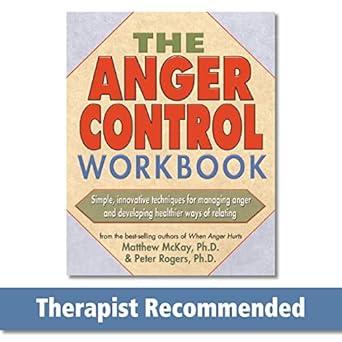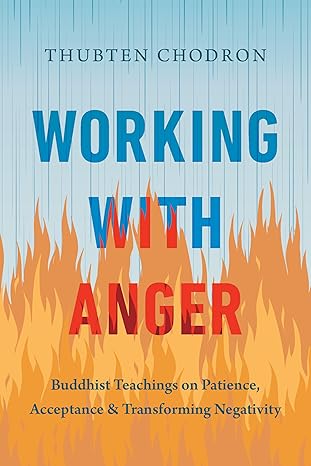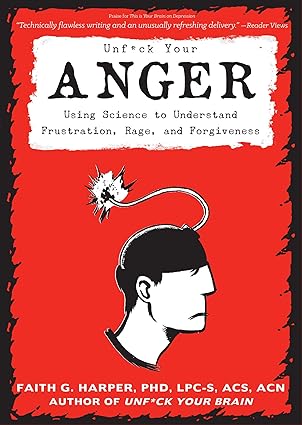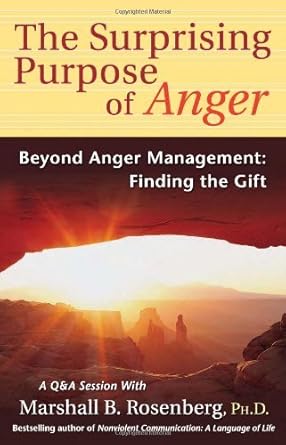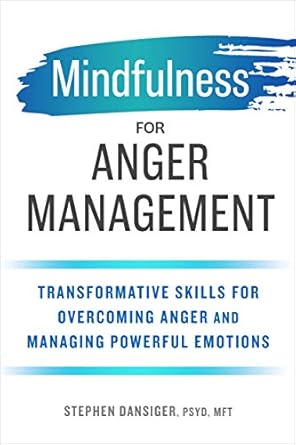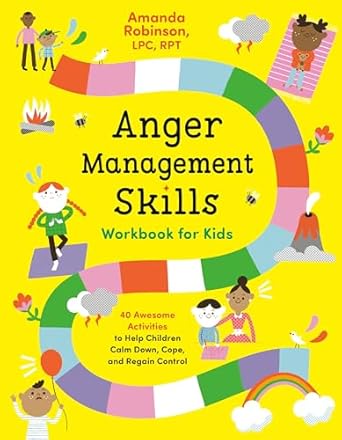Summary: In today's article, I have handpicked 20 of the best anger management books that offer expert insights, real-life strategies, and powerful tools to manage anger effectively. My top 3:
- Anger by Thich Nhat Hanh
- The Dance of Anger by Harriet Lerner
- The Anger Management Workbook for Men by Aaron Karmin LCPC
Anger management books provide practical strategies to recognize triggers, control emotions, and improve relationships. Unmanaged anger can lead to stress and conflict, but these books offer tools to stay calm and respond constructively, leading to a more balanced and fulfilling life.
TOP 20: Best Anger Management Books
- Anger by Thich Nhat Hanh
- The Dance of Anger by Harriet Lerner
- The Anger Management Workbook for Men by Aaron Karmin LCPC
- Don't Believe Everything You Think by Joseph Nguyen
- Anger Management Workbook for Kids by Samantha Snowden MA
- How to Stop Losing Your Sh*t with Your Kids by Carla Naumburg PhD
- Anger by Gary Chapman
- The Cognitive Behavioral Workbook for Anger by William J. Knaus EdD
- Never Get Angry Again by David J. Lieberman
- The Anger Management Workbook for Women by Julie Catalano MSW LICSW
- The Cow in the Parking Lot by Leonard Scheff & Susan Edmiston
- Anger Management for Everyone by Raymond Chip Tafrate & Howard Kassinove
- Rage by Ronald Potter-Efron MSW PhD
- Letting Go of Anger by Patricia S. Potter-Efron
- The Anger Control Workbook by Matthew McKay
- Working with Anger by Thubten Chodron
- Unf*ck Your Anger by Faith G. Harper PhD LPC-S ACS ACN
- The Surprising Purpose of Anger by Marshall B. Rosenberg
- Mindfulness for Anger Management by Stephen Dansiger PsyD MFT
- Anger Management Skills Workbook for Kids by Amanda Robinson LPC RPT
1. Anger
- Author: Thich Nhat Hanh
- About: A Buddhist monk’s guide to understanding and transforming anger through mindfulness.
- Style of writing: Calm, reflective, and meditative.
- Length: 100–120 pages (approx. 25,000 words)
- Year written: 2001
- Emotional impact: Profound and soothing; leaves readers with a sense of peace.
- Difficulty level: Easy to moderate
- Why read it: For those looking for spiritual and mindful practices to manage anger through inner calm.
2. The Dance of Anger
- Author: Harriet Lerner
- About: Focuses on how women experience and express anger in relationships. It provides practical steps for healthy emotional expression.
- Style of writing: Direct and conversational, with therapeutic advice.
- Length: 250–300 pages (approx. 60,000 words)
- Year written: 1985
- Emotional impact: Empathetic and validating, with long-lasting insights on personal growth.
- Difficulty level: Moderate
- Why read it: A must-read for women looking to express their anger constructively and to understand its role in relationships.
3. The Anger Management Workbook for Men
- Author: Aaron Karmin LCPC
- About: Provides exercises, techniques, and strategies tailored to men for managing anger.
- Style of writing: Practical, step-by-step, and informative.
- Length: 250 pages (approx. 55,000 words)
- Year written: 2013
- Emotional impact: Empowering and transformative for those seeking to improve emotional regulation.
- Difficulty level: Moderate
- Why read it: Practical workbook for men aiming to gain control over their anger.
4. Don't Believe Everything You Think
- Author: Joseph Nguyen
- About: Focuses on mindfulness-based cognitive behavioral techniques for dealing with intrusive thoughts and anger.
- Style of writing: Accessible, clear, with engaging exercises.
- Length: 160–180 pages (approx. 40,000 words)
- Year written: 2019
- Emotional impact: Refreshing and insightful, with a focus on breaking harmful thought patterns.
- Difficulty level: Easy to moderate
- Why read it: Offers tools for changing negative thinking that fuels anger.
5. Anger Management Workbook for Kids
- Author: Samantha Snowden MA
- About: A workbook for children that introduces anger management tools in a playful, engaging way.
- Style of writing: Simple, age-appropriate, with activities and illustrations.
- Length: 100 pages (approx. 25,000 words)
- Year written: 2013
- Emotional impact: Fun and encouraging, helps children process their feelings of anger.
- Difficulty level: Easy
- Why read it: Ideal for parents or educators working with children to manage emotions.
6. How to Stop Losing Your Sh*t with Your Kids
- Author: Carla Naumburg PhD
- About: Practical advice for parents on managing their anger and building better relationships with their children.
- Style of writing: Honest, humorous, and practical.
- Length: 250 pages (approx. 60,000 words)
- Year written: 2017
- Emotional impact: Relatable and humorous, while offering helpful insights.
- Difficulty level: Easy to moderate
- Why read it: Perfect for parents who want to regain control over their emotions and improve family dynamics.
7. Anger
- Author: Gary Chapman
- About: Chapman, known for “The 5 Love Languages,” examines how to manage anger in relationships.
- Style of writing: Clear, straightforward, and relationship-focused.
- Length: 120–150 pages (approx. 35,000 words)
- Year written: 2007
- Emotional impact: Warm and insightful, with practical steps for healthier relationships.
- Difficulty level: Easy
- Why read it: Ideal for couples or individuals seeking to improve emotional control in relationships.
8. The Cognitive Behavioral Workbook for Anger
- Author: William J. Knaus EdD
- About: Provides cognitive behavioral therapy (CBT) tools to help individuals identify and change anger-triggering thought patterns.
- Style of writing: Structured and evidence-based.
- Length: 250 pages (approx. 60,000 words)
- Year written: 2012
- Emotional impact: Practical, with a focus on cognitive restructuring.
- Difficulty level: Moderate
- Why read it: Excellent for those seeking evidence-based strategies for anger management.
9. Never Get Angry Again
- Author: David J. Lieberman
- About: A comprehensive guide offering psychological insights and techniques for avoiding anger triggers.
- Style of writing: Engaging, practical, and motivational.
- Length: 220 pages (approx. 55,000 words)
- Year written: 2015
- Emotional impact: Motivational and empowering, leaving a lasting impression on self-regulation.
- Difficulty level: Easy
- Why read it: A simple, no-nonsense guide for individuals who want to reduce anger without deep psychological jargon.
10. The Anger Management Workbook for Women
- Author: Julie Catalano MSW LICSW
- About: A workbook tailored for women, offering exercises and insights to deal with anger effectively.
- Style of writing: Compassionate, therapeutic, and structured.
- Length: 250 pages (approx. 60,000 words)
- Year written: 2012
- Emotional impact: Empowering and self-affirming for women facing anger challenges.
- Difficulty level: Moderate
- Why read it: A great resource for women seeking to understand and manage anger constructively.
11. The Cow in the Parking Lot
- Authors: Leonard Scheff & Susan Edmiston
- About: A guide to transforming anger into calm through Zen-based teachings.
- Style of writing: Light, humorous, and Zen-inspired.
- Length: 160 pages (approx. 40,000 words)
- Year written: 2009
- Emotional impact: Humorous but profound, leaving a lasting sense of calm.
- Difficulty level: Easy
- Why read it: A lighthearted but insightful approach to handling anger in everyday life.
12. Anger Management for Everyone
- Authors: Raymond Chip Tafrate & Howard Kassinove
- About: A practical and research-based workbook on how to understand and manage anger.
- Style of writing: Practical, evidence-based, and detailed.
- Length: 300 pages (approx. 75,000 words)
- Year written: 2009
- Emotional impact: Clinical but accessible, with strong practical tools.
- Difficulty level: Moderate to high
- Why read it: Comprehensive and scientifically grounded, suitable for anyone serious about mastering anger.
13. Rage
- Author: Ronald Potter-Efron MSW PhD
- About: Explores the nature of rage and its effect on relationships, offering tools to manage intense emotional reactions.
- Style of writing: Direct and informative with a focus on therapeutic tools.
- Length: 280 pages (approx. 70,000 words)
- Year written: 2004
- Emotional impact: Intense, with profound insights into the underlying causes of rage.
- Difficulty level: Moderate
- Why read it: Deep insights into rage and practical tools to understand and deal with its intensity.
14. Letting Go of Anger
- Author: Patricia S. Potter-Efron
- About: A guide to understanding the emotions underlying anger and how to release them for personal peace.
- Style of writing: Compassionate, therapeutic, and reflective.
- Length: 200 pages (approx. 50,000 words)
- Year written: 2010
- Emotional impact: Calming and reflective, leading to a shift in perspective.
- Difficulty level: Moderate
- Why read it: Perfect for those who want to release the grip of anger and adopt healthier emotional patterns.
15. The Anger Control Workbook
- Author: Matthew McKay
- About: Uses cognitive behavioral techniques to address anger and its effects on relationships.
- Style of writing: Structured, CBT-focused, and practical.
- Length: 250 pages (approx. 60,000 words)
- Year written: 2000
- Emotional impact: Empowering, with a focus on change and growth.
- Difficulty level: Moderate
- Why read it: Great for those seeking a structured, therapy-based approach to anger control.
16. Working with Anger
- Author: Thubten Chodron
- About: A Buddhist perspective on managing anger, focusing on mindfulness and compassion.
- Style of writing: Spiritual, compassionate, and calming.
- Length: 120 pages (approx. 30,000 words)
- Year written: 2003
- Emotional impact: Profound, with a sense of spiritual healing.
- Difficulty level: Moderate
- Why read it: Ideal for those seeking a spiritual, mindfulness-based approach to anger.
17. Unf*ck Your Anger
- Author: Faith G. Harper PhD LPC-S ACS ACN
- About: A no-nonsense guide to understanding and managing anger in a direct, relatable way.
- Style of writing: Direct, humorous, and blunt.
- Length: 140 pages (approx. 35,000 words)
- Year written: 2019
- Emotional impact: Empowering and humorous, offering practical advice for self-improvement.
- Difficulty level: Easy
- Why read it: Perfect for those who want a straightforward and approachable guide to anger management.
18. The Surprising Purpose of Anger
- Author: Marshall B. Rosenberg
- About: A compassionate exploration of how anger can serve as a tool for personal growth and positive change.
- Style of writing: Compassionate, thought-provoking, and insightful.
- Length: 180 pages (approx. 45,000 words)
- Year written: 2004
- Emotional impact: Deeply transformative, encouraging self-awareness and compassion.
- Difficulty level: Moderate
- Why read it: Insightful for those wanting to understand the deeper purpose of anger and how it can be channeled productively.
19. Mindfulness for Anger Management
- Author: Stephen Dansiger PsyD MFT
- About: Focuses on the intersection of mindfulness and anger management, with practical exercises.
- Style of writing: Gentle, reflective, and mindfulness-based.
- Length: 200 pages (approx. 50,000 words)
- Year written: 2015
- Emotional impact: Calming, with an emphasis on present-moment awareness.
- Difficulty level: Moderate
- Why read it: Ideal for those seeking mindfulness tools for emotional regulation and anger management.
20. Anger Management Skills Workbook for Kids
- Author: Amanda Robinson LPC RPT
- About: A workbook designed to help children learn healthy ways to manage anger.
- Style of writing: Simple, engaging, and activity-based.
- Length: 100 pages (approx. 25,000 words)
- Year written: 2014
- Emotional impact: Fun, practical, and effective for kids learning how to deal with strong emotions.
- Difficulty level: Easy
- Why read it: Great for parents or therapists working with children on emotional regulation.
Conclusion
Anger management books offer practical tools to help you understand and control your emotions in a healthy way. Whether you need mindfulness techniques, relationship advice, or structured exercises, there’s a book to fit your needs. In my opinion, three of the best are Anger by Thich Nhat Hanh, which teaches mindfulness to transform anger, The Dance of Anger by Harriet Lerner, which helps you express anger in relationships, and The Anger Management Workbook for Men by Aaron Karmin, a hands-on guide to mastering emotions. I think these books are great because they offer a mix of deep insight and practical solutions. No matter where you are on your journey, they can help you stay calm, improve relationships, and lead a more balanced life.

